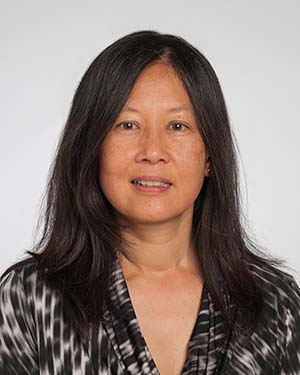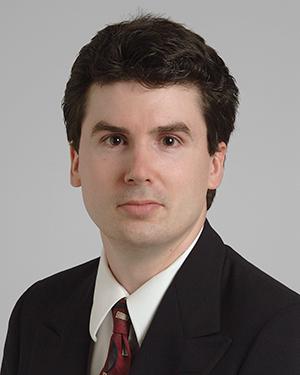Research News
09/23/2022
New Cleveland Clinic Centers of Excellence Target “Long COVID,” Myeloid Leukemia, Gut Microbiome
The program, which has funded 21 research teams since 2015, has a proven record of supporting projects that go on to attract large external grants.

Cleveland Clinic is providing funding up to $1.4 million over two years to form three new Research Centers of Excellence in the areas of myeloid leukemia, long-term COVID-19 symptoms and the link between the gut microbiome and cancer progression.
Centers of Excellence are collaborative clinical and laboratory research teams focused on discovery to improve patient care. The awards are given to both new and existing teams to help researchers create the infrastructure, tools and data necessary to apply for external program-level funding.
The program, which has funded 21 research teams since 2015, has a proven record of supporting projects that go on to attract large external grants. For example, Cleveland Clinic invested $10.9 million to fund 13 research centers between 2017 and 2021 – directly resulting in $65 million in external grant funding.
“This investment in our scientists has been a catalyst for discovery that has led to funding and – more importantly – innovations for patient care,” says Serpil Erzurum, MD, Cleveland Clinic’s Chief Research and Academic Officer. “As we invest in diverse and multi-disciplinary teams, we have the opportunity to find solutions for critical problems in our community and the world.”
Funding for this year’s awardees begins this month, and includes:
Vascular Mechanisms in Long COVID
Award amount: $150,000 in year one, up to $400,000 over two years.
Topic and approach: About 30% of SARS-COV-2 survivors experience long-term, persistent symptoms – including shortness of breath and fatigue. These symptoms make up “post-acute sequelae of SARS COV-2 infection.” This condition is more commonly known to the public as “long COVID.” The Cleveland Clinic provides care for these patients through the ReCOVer Clinic.
Investigators – including experts in the fields of cardiorespiratory, autoimmune and vascular diseases – plan to define a long-term research program, establish a sample set and create preliminary data that can serve as a base for future projects. Serum, plasma, platelets and cryopreserved peripheral blood mononuclear cell samples allow researchers to begin phenotyping the syndrome and define its effects.
Primary investigators:
Co-investigators:
- John Barnard, PhD
- Tamanna Singh, MD
- Kristin Englund, MD
- Marcela Diaz-Montero, PhD
Gut microbial endocrine organ regulation of cancer
Award amount: $150,000 in year one, up to $400,000 over two years.
Topic and approach:
A growing body of research indicates that alterations in the gut microbiome can influence outcomes and therapeutic response in many cancers. Bacteria within or associated with tumors, as well as metabolic products that originate from the gut microbiome, uniquely shape anti-tumor immunity as well as response to common anti-cancer therapies.
This Center of Excellence team plans to harness the microbiome to develop cancer therapeutics. The center’s researchers plan to produce projects, shared resources and a screening process with a focus on how microbiome-derived metabolites affect cancer progression and response to chemotherapy.
The team includes members of the Lerner Research Institute’s Center for Microbiome and Human Health, and will expand current CMHH core services to include cancer model-specific gnotobiotic mouse approaches and microbiome-derived metabolite profiling.
Primary investigators:
Co-investigator
Developing multi-modal immunotherapies for the treatment of myeloid leukemias
Award amount: $300,000 in year one, up to $600,000 over two years
Topic and approach: Researchers plan to modernize the treatment of myeloid neoplasia, which are types of blood cancer that begin with abnormal mutations in the blood marrow. This includes myeloid leukemia and myelodysplastic syndrome.
The current therapies for these conditions show low response and high relapse rates. Five-year survival rates for advanced myelodysplastic syndromes and acute myeloid leukemia are low – likely less than 20%.
The goal of this Center of Excellence is to improve outcomes for patients by designing new, effective immunotherapies. While immunotherapy has greatly improved the prognosis for many patients with lymphoma and other types of cancer, those with myeloid neoplasms have not yet benefited.
Investigators plan to use the funding to establish and expand two cores. One is a clinical and genomic database, backed with a biorepository of patient bone marrow and peripheral blood mononuclear cells. The other supports immuno-monitoring to provide more information on cell responses and antigens that could help fight these diseases.
Researchers aim to develop multi-faceted approaches to treat myeloid leukemia, including identifying neoantigens associated with leukemia and developing more effective T-cell-based therapies by blocking novel checkpoint receptors and reprogramming epigenetic mechanisms.
Initial projects include:
- Identifying and validating leukemia-associated neoantigens derived from aberrant splicings
- Investigating mechanisms by which the immune checkpoint protein VISTA promotes immunoevasion in myeloid neoplasm.
- Developing and optimizing CAR T cell therapy targeting the monocytic leukemic antigens B7-H3.
- Targeting the epigenetic modifier TET to enhance anti-leukemia CAR T cell responses as well as boosting endogenous immunosurveillance.
Primary investigator: Lily Wang, PhD
Co-investigators:
Featured Experts
News Category
Related News
Want To Support Ground-Breaking Research at Cleveland Clinic?
Discover how you can help Cleveland Clinic save lives and continue to lead the transformation of healthcare.
Give to Cleveland Clinic


